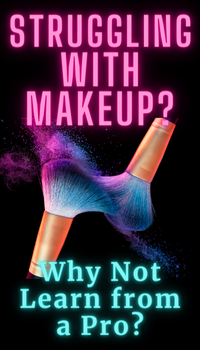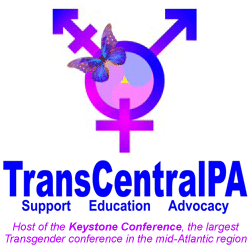So Lonely
This article explores some of the same issues that Michelle discussed in an earlier article about being alone as a transgender person. However, while this piece has some personal insights, it is more of a general look at a similar but distinct situation for the overall transgender community. That makes it worth a separate article.
There are many times when I envy the transgender folk who live in major population centers with plenty of other transgender people around. They might be in New York, Los Angeles, the San Francisco Bay Area, or even a major Southern city like Atlanta.
Living in a big city has its own problems, especially in the current era. Crime runs rampant, the cost of living is spectacularly high, it can be difficult to get around the city using any form of transportation, and the hard left political climate in all of these cities makes them uninviting to people of other persuasions.
To say it up front, all of these factors would lead me to not want to live in most of these metropolitan areas. I am much too politically conservative to fit into either coastal culture. I also would not want to deal with the crime, rent prices, and insane social policies that one finds in these areas. When I first graduated from college, I might have gone to a place like New York City. But even then, NYC was struggling with major social problems and many people considered it almost unlivable. As for California, just look at how many people are leaving for saner regions.
Aside from all of those reasons not to move, I currently own my condominium which I acquired for a reasonable price. It would be difficult to give it up and have to pay rent again. I doubt that I could afford it for very long.
Unfortunately, though, living in a smaller city like Chattanooga has plenty of disadvantages for the transgender person. You cannot find professional services for the transgender person as easily in a smaller city. I have to go to Atlanta to find a good therapist who specializes in working with transgender persons. I will also go there to have my breast augmentation surgery (boob job) since nobody here works with transgender patients. Finding good clothes is also a major hassle around here.
Despite all of that, probably the worst issue for the transgender person in a smaller area is the sense of isolation that the person feels. We do not have many transgender persons in this area. Someone estimated that we might have around 100 transgender persons in the metro region. I suspect that estimate is somewhat high. I would be surprised if the number exceeded 50 for a region of around a half million people.
This means that you are very isolated from other transgender persons. You almost never run into one in the course of everyday life. One supermarket that I go to has one employee who may be transgender female. I have not asked her. I did wear my transgender pin one morning so she could see it. She did not react. I will probably let it go unless she says something to me.
At least I have a few other transgender persons to see every now and then. It could be worse. How many transgender persons live in a small town in which they are the only one around? That would be almost total isolation from the transgender world. Nobody within your social circle would understand any of your special issues. You might even choose to not live as transgender in that kind of situation, especially if the locals were hostile to transgenderism.
Let’s return to the situation for my hometown. We did have a transgender support group. It was never very big in the time that I saw it – certainly no more than ten people ever showed up for a meeting. The group may have been doing more activities before I got there, but what I saw was mostly a batch of older transgender women using the meeting as a place to socialize with each other. It did not offer much to anyone outside their little group.
The pandemic killed the group in fact, if not totally. Frankly, it was almost dead before the COVID virus hit us. I did find one other older transgender lady with whom I got along and from whom I could seek advice. That helped my situation a little bit.
In addition to that transgender support group, Chattanooga also has a Pride organization that is supposed to also include transgender persons. For some reason, the transgender support group people had some kind of problem with the Pride folks and wanted nothing to do with them. I never could figure out the cause of the problem. I probably ought to contact the Pride organization to see if it would be worth checking out.
Other than the one transgender friend from the support group, I feel very alone and isolated living in this city. Alone and isolated is not a good place to be for anyone. In the animal world, getting kicked out of the pack often means you die pretty quickly, either from starvation or by predator attack. The results of isolation are not as drastic for humans – we can usually live through it, but the isolated state is not good for any of us.
How does isolation specifically affect the transgender person?
In a general sense, it saps your ability to deal with life’s challenges.
It makes you feel that you are less worthy than other people, as if you are completely undesirable as a friend or romantic partner. You start to wonder if you have lice or fleas or cooties.
Isolation takes away the strength you receive from social interactions with other transgender people.
It leaves you vulnerable to possible problems that could hurt transgender persons, such as attacks from the government sector like the ones we have seen in the last couple of years. You might find out about these problems faster if you have regular contact with other transgender persons.
In past times, transgender persons had very few options for dealing with isolation from others of their type. Maybe they could find some print media aimed at the transgender market, or perhaps the occasional radio show on an alternative radio station might be aimed at them. If such shows existed, they probably catered to larger groups of transgender persons in big cities and never reached the isolated ones.
The isolated transgender person could try to travel to meetings in bigger cities as often as possible, which was usually not very.
These tools did not help much but were better than nothing. Unfortunately, the truly isolated transgender folk could not even make use of these tools. For them, and even for the folks in slightly bigger places, you sooner or later went back to your isolated life and lived as well as you could.
But in the mid-1990’s, a new tool came into being and started to make numerous changes to everyday life. It was called the Internet. It spurred the creation of various new tools that could help link people to each other. Collectively, these tools came to be known as:
SOCIAL MEDIA! (doing)
All of the new social media tools would instantly connect everyone to everyone else in ways no one had ever imagined before, according to its evangelists. You would never have to leave home to reach out and touch as many someones as you could ever want.
As an old science fiction fan, I soon realized that the situation they described closely resembled the scene in a novel from the 1950s by Isaac Asimov titled The Caves of Steel. In that universe, the rich Spacers live in splendid isolation, hardly ever leaving their luxurious homes to do much of anything. This was in contrast to the overcrowded Earth, where people could not avoid dealing with each other in person.
To be fair, social media has helped our society a great deal in very many ways. Videoconferencing allows people to interact with each other without traveling. It is especially good for business meetings or instructional sessions. It can also be used for social gatherings. In our world, I have been known to sit in on meetings of the San Antonio transgender group, which would be completely impossible without video conferencing software.
But even given all that, most people would agree that social media has caused many problems since it came into being. These tools have allowed the darker side of humanity to shine forth in all of its anonymous glory. Online trolls have ruined the social media experience for so many people, who now refuse to use one or more tools.
There are other problems. Maybe it is a generational thing, but videoconferences are not terribly satisfying as social events. I would still rather meet people face to face, shake hands or hug, and interact like humans have from the beginning of time. Social media still feels artificial and a bit formal. You feel like you ought
to say, “Over,” when you finish speaking as is customary in a radio conversation to avoid irritating crosstalk that no one can understand.
Maybe the younger crowd accepts this more easily than I do. Maybe social media interaction will become the norm in the future. I definitely hope not. It has its place, but humans need to meet in person as often as possible. If nothing else, in-person intimacy still beats social media sex. According to my long-ago memory of reading The Caves of Steel, sex with a partner was one of the few reasons why a resident of one of the outer planets would voluntarily meet another person in the flesh.
Now back to the original point of this article. What can an isolated transgender person do to help ease his/her/their situation, in addition to the traditional remedies already described? One obvious action is to move to a place with more transgender persons around. This is not always feasible for many reasons. The person may be a child who lives at home, or may not have acquired the job skills to earn a living, or may be caring for a relative. And as we discussed at the beginning, the areas with the transgender people may have plenty of other problems that discourage a move.
Another factor is that the person may not want to leave the area because it is familiar and comfortable. In other words, it is home.
I wish I could offer better solutions to the isolated transgender person. But the Internet and social media are probably the best options. This person should also be willing to travel when feasible. I met a number of Atlanta-area transgender persons by attending some of their support group meetings.
I may make more of an effort to see who is working on transgender issues in Tennessee. The political climate in this state is turning against us. If the politicians are willing to deny transgender health care to children and younger teenagers, what would stop them from trying to deny the same care to all transgender persons? I feel like I may be forced to become more politically active in the transgender world just to protect myself from persecution.
I may also feel the need to speak out locally to support transgender causes. I have tried to stay out of that arena, but if our status is being threatened, it may be necessary.
We must discuss one other aspect of my particular situation as an isolated transgender person. Many late-transition transgender persons were able to find romantic partners and numerous friends during their earlier years. That was not my experience. You could call me a non-violent incel. Women seemed to sense that there was something not quite right about me as a male. With the rarest of exceptions, they stayed away from me. Therefore, I lived my life quite isolated from friends and romantic partners. Once my family died off, all I had left were a few friends who had somehow managed to see and accept me as I really was.
This incel status may affect my perception of the isolated transgender’s solitude. But I do not think so. I suspect that I was not the only incel who ended up discovering his/her/their transgender status later in life. I wonder how many of us there really are. And after further reflection, I totally believe that my earlier observations are still relevant and correct.
The isolated transgender person has a truly hard life to live. We should do as much as we can to help that person in their plight. After all, even those transgender persons with a full social calendar are not guaranteed to keep those friends forever. Even in big cities, people can end up alone for lots of different reasons. In the end, the isolated transgender person whom you help may be yourself.
* * * * *
If you want to see more of my articles about the transgender life, I hope you will check out my free Substack blog: “Talking Trans”. You can also subscribe to get automatic notices when new articles are published.
Category: Transgender Body & Soul










